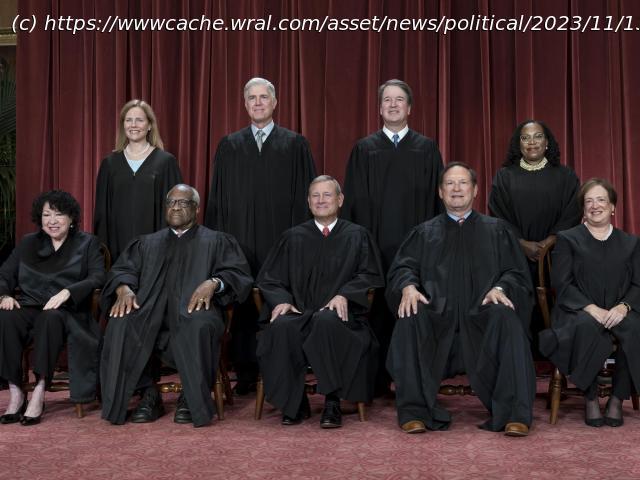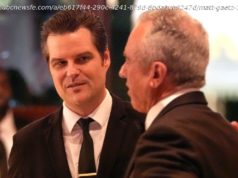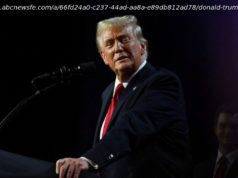WASHINGTON (AP) — The Supreme Court on Monday adopted its first code of ethics, in the face of sustained criticism over undisclosed trips and gifts from wealthy benefactors to some justices.
The Supreme Court on Monday adopted its first code of ethics, in the face of sustained criticism over undisclosed trips and gifts from wealthy benefactors to some justices.
The policy, agreed to by all nine justices, does not appear to impose any significant new requirements on them, and, indeed, they said in an unsigned statement that they have long adhered to ethics standards.
“The absence of a Code, however, has led in recent years to the misunderstanding that the Justices of this Court, unlike all other jurists in this country, regard themselves as unrestricted by any ethics rules,” the justices wrote. “To dispel this misunderstanding, we are issuing this Code, which largely represents a codification of principles that we have long regarded as governing our conduct.”
The code leaves compliance to the justices themselves and does not create any other means of enforcement.
The issue has vexed the court for several months, over a series of stories questioning the ethical practices of the justices. Many of those stories focused on Justice Clarence Thomas and his failure to disclose travel and other financial ties with wealthy conservative donors including Harlan Crow and the Koch brothers. But Justices Samuel Alito and Sonia Sotomayor also have been under scrutiny.
Three justices, Amy Coney Barrett, Elena Kagan and Brett Kavanaugh, have voiced support for an ethics code in recent months.






